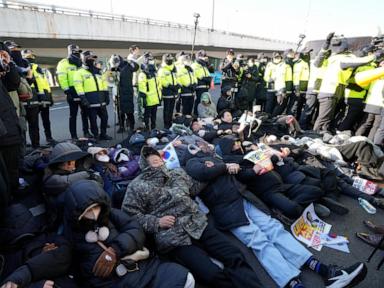‘Flag-gate’ led one jurist to issue an apology, but it wasn’t Samuel Alito

Everyone makes mistakes, including judges. Sometimes they acknowledge it. Mostly, they don’t.
A commendable example of the former is senior U.S. District Judge Michael Ponsor, who published an opinion essay in the New York Times in May criticizing Supreme Court Justice Samuel Alito’s involvement in what is sometimes called “Flag-gate.” Although Ponsor’s criticism was entirely sensible, he subsequently apologized for going beyond the “proper boundaries” for commentary by a sitting judge. Alito himself has not been so forthcoming, at least in part due to the absence of a formal process for reviewing the ethics of a justice’s conduct.
In January 2021, at the height of the attempts to reverse the outcome of the 2020 presidential election, a flagpole at Alito’s home in Virginia was seen displaying an upside-down American flag. Long used as a signal of distress, the inverted flag had been conspicuously brandished in the mob that attacked the Capitol during the Jan. 6 riot.
Ponsor’s essay, which was published eight days after the Times first reported the flag story, accurately explained that the controversial flag created an appearance of partisanship under the circumstances, which “any judge with reasonable ethical instincts would have realized immediately.” Flying it “then and in that way was improper,” he wrote.
A judicial misconduct complaint was subsequently filed against Ponsor by the Article III Project, a conservative advocacy group, charging that he had violated the Code of Conduct for United States Judges by failing to act “in a manner that promotes public confidence in the integrity and impartiality of the judiciary.”
The matter was assigned to Chief Judge Albert Diaz of the Fourth Circuit Court of Appeals, who forwarded the complaint to Ponsor, along with his own preliminary conclusion that “misconduct had occurred,” including “commentary on partisan issues” that tended to “diminish public confidence” in the independence of the judiciary.
To his credit, Ponsor did not protest or challenge Diaz’s assessment. He responded instead with a written apology, recognizing that his essay could have been interpreted as a call for Alito’s recusal, and thus a comment on pending litigation. Diaz determined that the apology constituted sufficient “voluntary corrective action” under the applicable rules, and terminated the proceeding earlier this month. (As a retired legal ethics professor, I consider this a relatively close question, with several potential defenses available under the Code of Conduct. Ponsor admirably chose to forgo self-justification.)
Alito wasn’t half as classy.
A group of Democratic legislators called on the justice to recuse himself from two cases involving the 2020 election, arguing that the inverted flag appeared to indicate support for the “Stop the Steal” movement. Alito refused, asserting that his wife had flown the flag, despite his objection, in reaction to a neighborhood dispute unrelated to the election.
A more gracious jurist would have acknowledged the legitimate question raised by the apparently concurrent overlap between his flag and that of the Capitol insurrectionists. Instead, Alito castigated his congressional critics. Although nobody could previously have known about Martha-Ann Alito’s evident fondness for flag flying, said to have been over the justice’s protest, Alito charged that the Democrats were motivated by “political or ideological considerations or a desire to affect the outcome of Supreme Court cases.”
The contrast with Ponsor reveals more than Alito’s thin skin. His irate reaction to the Democrats’ recusal request amounted to a partisan counterattack. In a less indignant response, Alito would have at least allowed the possibility of misinterpretation or misunderstanding — occurring before he revealed his wife’s role — with his political resentments omitted.
More broadly, the two episodes demonstrate the need for some formal procedure for raising ethics issues regarding Supreme Court justices.
In Ponsor’s case, a complaint was brought under the rules applicable to the lower federal courts. Judge Diaz then reviewed the facts and arrived at an “objective view” of the “political implications and undertones” of the Times essay, which he communicated to Ponsor.
This process allowed Ponsor to take stock of his own conduct in a manner that Diaz called respectful, reflective and responsive. Ponsor concluded that he had in fact undermined public confidence in the judiciary, “unintentionally at the time but clear in retrospect.”
Although the Supreme Court finally adopted a code of conduct in late 2023, there is no similar process for enforcing it or even determining compliance. There is no central place to lodge complaints, no dispassionate judge to review allegations, nobody to convey an “objective view” of the “political implications” of a justice’s activities and no incentive for the justices to reassess their own conduct. Even recusal motions are presented only to the individual justice, rather than the full court.
It would probably be too much to expect the notably combative Alito to acknowledge that waving an upside-down flag in January 2021 was at best an unfortunate coincidence, much less to apologize for creating an appearance of identification with the Capitol mob. Without a formal process, however, it is impossible even to request it.
Steven Lubet is the Williams Memorial Professor Emeritus at the Northwestern University Pritzker School of Law.
-

Bangladesh court again rejects bail for Hindu leader who led rallies
A court in southeastern Bangladesh has rejected a plea for bail by a jailed Hindu leader who led large rallies in the Muslim-majority country demanding better security for minority groupsABC News - 10h -

Impeached South Korean president issues defiant message
Impeached South Korean President Yoon Suk Yeol has issued a defiant statement to his rightwing supporters gathered outside his residence in the capital of SeoulABC News - 15h -

Yellen Issues Debt Limit Warning to Congress
The Treasury secretary urged Congress to protect the full faith and credit of the United States by raising the debt limit.The New York Times - 5d -

49ers' Deebo Samuel reflects on depression he faced after Super Bowl losses: 'One of the worst feelings ever'
Samuel says he goes months without wanting to be seen following a Super Bowl lossCBS Sports - 6h -

Anatomy of a comeback: How Cam Skattebo nearly led Arizona State to historic upset against Texas in Peach Bowl
The Longhorns prevailed in double-overtime after blowing a 24-8 leadCBS Sports - 21h -

‘It wasn’t the easiest decision’: Eagles set to rest Saquon Barkley amid record bid
Sirianni: Barkley will ‘probably be somebody that rests’ Running back is 101 yards short of NFL rushing record Saquon Barkley appears set to sit out the Philadelphia Eagles final regular-season ...The Guardian - 1d -

Trump’s killing of Qassem Suleimani led to fall of Assad, says Tugendhat
Ex-security minister says assassination ordered by Trump set off chain of events that led to revolution in Syria. Donald Trump’s decision to sanction the assassination of an elite Iranian commander ...The Guardian - 1d -

The top 5 education issues of 2024
Universities and state education policies dominated in 2024 with a tumultuous year that saw massive protests over the Israel-Hamas war and lawsuits over the separation of church and state in public ...The Hill - 1d
More from The Hill
-

Apple agrees to $95M settlement over Siri eavesdropping claims: Who could get payments, if it's approved
The agreement would put an end to a 5-year-old lawsuit that accused Siri of eavesdropping.The Hill - 27m -

Former GOP lawmaker: DOGE should focus on fixing Congress
Former Rep. Mike Gallagher (R-Wisc.) penned a Thursday op-ed in the Wall Street Journal urging Elon Musk and Vivek Ramaswamy to initially focus their push to cut government spending on Congress if ...The Hill - 31m -

California snowpack near average in season's first survey, though officials caution 'anything can happen'
Snowpack in the mountains of California is near average for this time of year, after a recent series of storms provided a much-needed boost to the region, officials reported Thursday. The season's ...The Hill - 32m -

Sanders calls for H-1B visa reform: 'Elon Musk is wrong'
Sen. Bernie Sanders (I-Vt.) has taken a swipe at Elon Musk’s defense of the H-1B visa program, which has driven a wedge between two factions of President-elect Trump’s most ardent supporters. ...The Hill - 34m -

5 big lobbying battles ahead
Welcome to The Hill's Business & Economy newsletter {beacon} Business & Economy Business & Economy The Big Story K Street gears up for Trump 2.0 Lobbyists will have their hands full in 2025 with ...The Hill - 35m
More in Politics
-

New Orleans is ‘more secure than it’s ever, ever been’ after attack, says Louisiana AG
Louisiana Attorney General Liz Murrill joins Meet the Press NOW to provide the latest on the investigation into the New Orleans terror attack, and an update on security in the city.NBC News - 19m -

Apple agrees to $95M settlement over Siri eavesdropping claims: Who could get payments, if it's approved
The agreement would put an end to a 5-year-old lawsuit that accused Siri of eavesdropping.The Hill - 27m -

Former GOP lawmaker: DOGE should focus on fixing Congress
Former Rep. Mike Gallagher (R-Wisc.) penned a Thursday op-ed in the Wall Street Journal urging Elon Musk and Vivek Ramaswamy to initially focus their push to cut government spending on Congress if ...The Hill - 31m -

California snowpack near average in season's first survey, though officials caution 'anything can happen'
Snowpack in the mountains of California is near average for this time of year, after a recent series of storms provided a much-needed boost to the region, officials reported Thursday. The season's ...The Hill - 32m -

Sanders calls for H-1B visa reform: 'Elon Musk is wrong'
Sen. Bernie Sanders (I-Vt.) has taken a swipe at Elon Musk’s defense of the H-1B visa program, which has driven a wedge between two factions of President-elect Trump’s most ardent supporters. ...The Hill - 34m